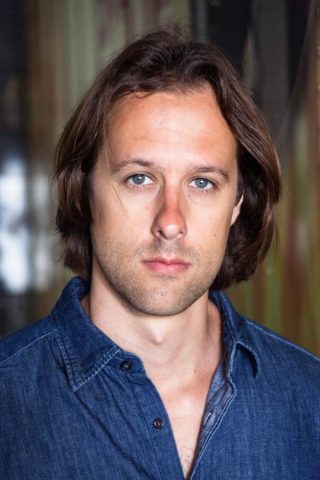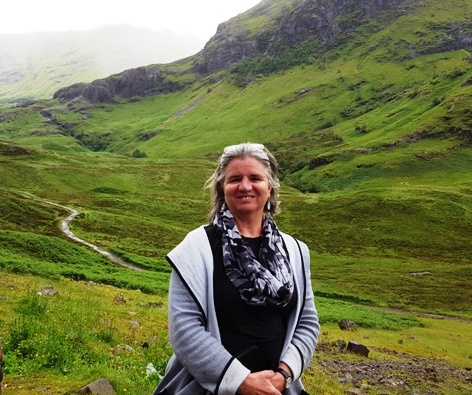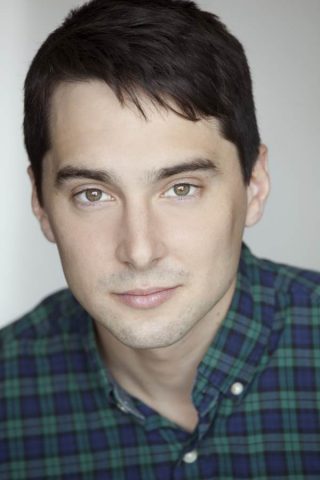
In a FringeNYC-less summer, other theater festivals promoting the work of up-and-coming artists are taking the lead, including the Ice Factory Festival at New Ohio, the Corkscrew Theater Festival at the Paradise Factory, and the UNFringed Festival, at the Secret Theatre. Here, we talk to three of the playwrights participating in the Broadway Bound Theatre Festival, a brand new festival whose aim is to help turn playwrights into producers. (See our previous interviews with Broadway Bound artists here.)
 Shane Howard on In Pursuit of Peace
Shane Howard on In Pursuit of Peace
Saturday, August 5, 12 PM; Tuesday, August 8, 4 PM; Thursday, August 10, 7:30 PM
Tell us about your play!
A few months after I’d written the first draft I asked Susan Merson — a writing mentor of mine — what she felt the play was about. “Fathers and sons and how they deal with love,” she said, without hesitation. I’ve always thought she summed it up nicely with that one strong sentence.
What have been the most exciting things about seeing your show come together?
There’s an incredible artistic team working to bring In Pursuit of Peace to life. One of the things I love is being witness to us all being taken to a place physically and emotionally far beyond the state we were in when rehearsals began. When that starts to take place you get a feeling that something is real and working within the structure of the play.
Who are your favorite playwrights, past and present?
All the greats — Inge, Shepard, Shanley, Beckett — and anyone who’s ever written a play with a genuine intention to get it produced and performed on-stage.
What famous (or not so famous) line do you wish you’d written?
There are many pieces of prose I enjoy. Strong monologues and sentences. But I do not wish to have been their authors. I’ll take the inspiration.
What would you change about the current state of theater?
More study, more funding and more respect.
How important is it to you that your work relate to our current political/social climate?
My focus is always on the persistent mystery within the play. If that has resonance in a political or social system, great! But I do not set out to fall within any particular climate. The writing and the story that's being revealed leads the way.
 Marylou DiPietro on Bone on Bone
Marylou DiPietro on Bone on Bone
Tuesday, August 8, 12:30 PM; Friday, August 11, 4 PM; Saturday, August 12, 12 PM
Tell us about your play!
My play, Bone on Bone, is about the choices we make – or fail to make – when the cushioning or the glue between ourselves and the lives and relationships we have grown comfortable with and accustomed to, has worn thin or is gone completely, and no longer holds us together as it once did.
What have been the most exciting things about seeing your show come together?
The most exciting thing has been seeing the characters come alive, which in turn allows the rewriting process to go so much more smoothly and organically. Now I can sit back and see, and hear the characters (the ones I actually created, rather than the ones I “imagined”) and write and tell their own story!
Who are your favorite playwrights, past and present?
Tennessee Williams, Arthur Miller, Eugene O’Neill, David Mamet, Sam Shepard, and of course William Shakespeare. Oh, and did I say Tennessee Williams?
What famous (or not so famous) line do you wish you’d written?
It’s definitely a toss-up between, “I have always relied on the kindness of strangers” and “The play’s the thing."
What would you change about the current state of theater?
That one’s easy! We need more theaters producing new plays, more women playwrights (writing and getting produced), and more theaters that will produce plays that make people talk, act, scream with laughter, think, dream, and change the course of a person's life!
How important is it to you that your work relate to our current political/social climate?
Extremely important! Otherwise, what’s the point?
 Mark Adrian Ford on KEYS
Mark Adrian Ford on KEYS
Wednesday, August 9, 12:30 PM; Saturday, August 12, 10:30 PM; Tuesday, August 15, 7:30 PM
Tell us about your play!
KEYS is a dark comedy about perseverance. It’s set in a dystopian realm where people live in either the regular world (a nightmarish wasteland) or a lavish garden city known as Paradise. The main character, Heroina, lives in the regular world. Heroina is strong, gritty and dead set on improving her future. She’s earned herself an opportunity to search through the massive, innumerable mountain of keys, which is where the play begins. If she can find a perfect key (while fending off outrageous sabotage at the hands of con-artists, guards, her peers and the High Judges) it will open the great door to Paradise and she’ll be peacefully safe for the very first time. So she’s been told and so she believes.
What have been the most exciting things about seeing your show come together?
Assembling the creative team and watching the actors shake up the characters has been invigorating. Our actors are finding angles and life that I never imagined before. The cast members each have such distinct pasts, personalities and talents, which influences how they approach their character(s). It’s been thrilling to witness.
Who are your favorite playwrights, past and present?
My favorite playwrights from the past are Samuel Beckett, Betty Lambert and Bernard Shaw. Presently I’m hugely inspired by Neil Simon, Howard Barker, Matt Stone, Trey Parker, Theresa Rebeck, Tomson Highway and Christopher Durang.
What famous (or not so famous) line do you wish you’d written?
“We fail? But screw your courage to the sticking place, and we’ll not fail” … Gets me every time. I don’t think I wish I’d written it. I’m just grateful Lady M was written.
What would you change about the current state of theater?
Theatre is one of the last experiences that can’t be pirated or translated into other mediums. It exists only at the time, in the space that it’s happening. Each performance is essentially a once in a lifetime opportunity. I’d heighten the general awareness of that.
How important is it to you that your work relate to our current political/social climate?
It’s important to me and to the artists that I collaborate with that our performances resonate truthfully with the way things are, or with the way we envision things are going to be. We want to create a community that promotes change in people as well as in our environment. If the play is relatable on a social level, I believe it encourages useful introspection and positive action.